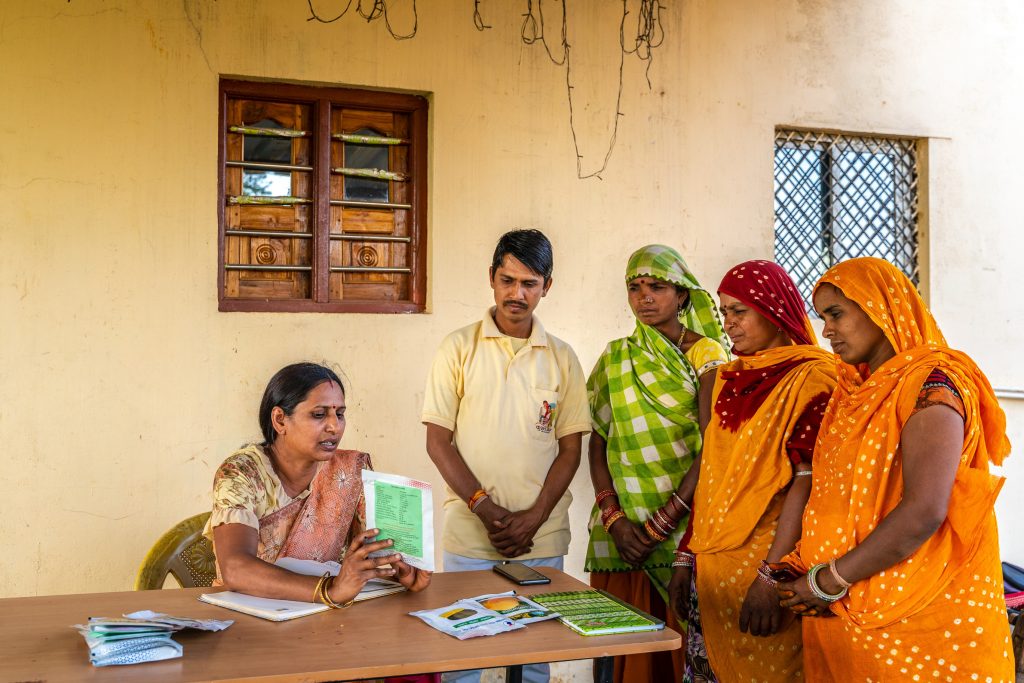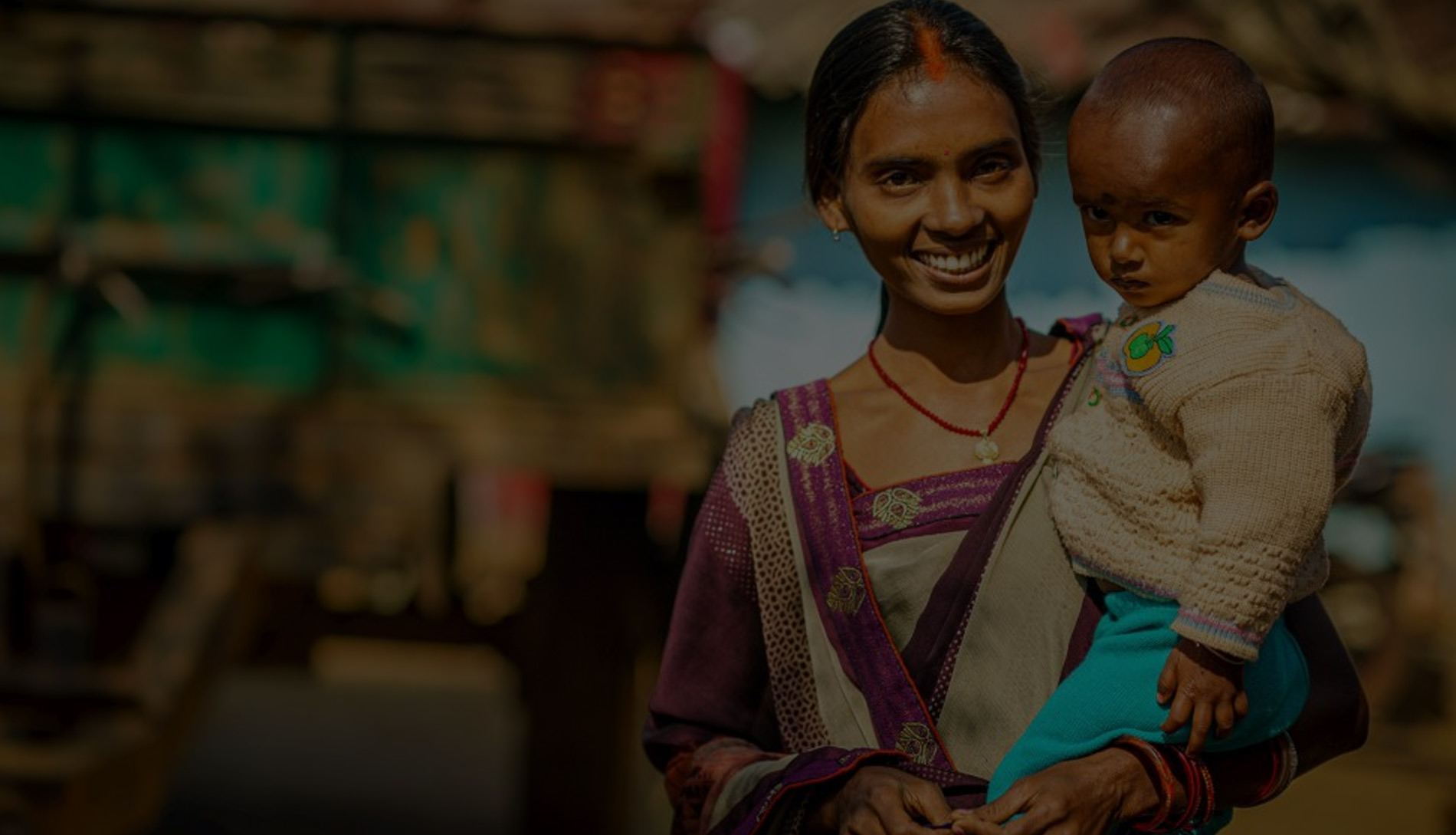Foundation for Inclusive Technology
Connecting to The New Economy & Quality of Life Services
A Collaborative initiative by Dhwani and Transform rural India Foundation
Technology for Development has been an abiding theme in last few decades, more so with society entering third and fourth industrial revolution and its impact on job market.
Technological Solutions play an increasing role in helping solve development and humanitarian challenges
Every aspect of society and daily life has been influenced in some way, by each of the industrial revolutions.
Rural India – Beset with poor education, poor connectivity and low investment – continued to languish
We are now at the cusp of fourth technology wave powered by cloud, social, mobile, the Internet of things (IoT) and artificial intelligence (AI), along with increasing computing power and data
THE INTENT:
To unlock technology pathways for new rural, to explore new productive and value-creation opportunities, and delivering quality of life services to advance human dignity and lives
THE APPROACH:
- accelerated coordinated efforts and solution discovery
- social-technical design that puts people at the centre in a way no one is left behind
- evolve program areas that harness the power of technology to make difference to rural India
- contribute to policy choices that determine poor benefits and focus on innovation, growth, and inequality
THE ASSOCIATION


Team

SWAPNIL AGARWAL
Senior Fellow

SUNANDAN MADAN
Senior Fellow

ANIRBAN GHOSE
Senior Fellow
Technology for Development has been an abiding theme in last few decades, more so with society entering third and fourth industrial revolution and its impact on job market – nature of jobs – gigs etc., skills & readiness of workforce, how does existing jobs get impacted and whats in it for poor communities with hitherto low participation in formal job markets. The other related dimension has been technological solutions increasing role in helping solve some development and humanitarian challenges. The interest around new world of ICT, big data, machine learning powered by prodigious young talent are the driving force of technology for good, harnessing their skills major advancement have been made on some of the toughest issues outlined by the UN Sustainable Development Goals. Unlike the earlier technology revolutions, the choices and incentives on innovation, growth, and inequality reduction will critically determine the divide becomes one of opportunity for larger societal good.
Industrial or Technology Revolutions have successively marked departure of production system away from hand-production methods to machines; favouring the better endowed both with fund of capital or compatible skills. Every aspect of society and daily life has been influenced in some way. Each of the industrial revolutions, characterised by unique defining technology spine, few lost and many gained, the average income and quality of life improved. Proto-industrialised societies like rural India where the primary-secondary sectors had stabilised in equilibrium over millennia through farm surpluses supporting guilds and trade networks unfortunately, on the balance lost on account of population implosion, flight of talent and capital. One of the first to be impacted was textile industry which had robust village-based employment, “mechanical production” pauperised the village-manufacturing networks and shifted manufacturing and wealth creation to city-based textile factories powered by game-changing use of steam power.

During this period roughly late 18th century low-population Europe and America transformed from largely rural, agrarian societies into industrialized, urban ones. The next second industrial revolution roughly late 19th century was one of “mass production” leveraging advances in sciences for new goods and services like steel, electric and automobiles. Societies changed drastically away from hand-crafted, traditional/draught-powered technologies, away from villages the die was cast in favour of upcoming cities, while this served well for low population regions across the planet, in places with high population dependence and low social progress the quest for rapid industrialisation became problematic. The third industrial revolution which continues to present times is characterised by the advent of digital technologies driven by the change from mechanical/analogue electronic to digital electronics, resulting in the widespread adoption of digital computers. As a country we were late in adopting the new wave, however, a section quickly adapted and rode the wave Bangalore, Pune, Hyderabad – the new silicon cities became mega cities with concentrated wealth. Rural India beset with poor education, poor connectivity and low investment continued to languish and couldn’t connect to the new wave of prosperity other than submitting to land sharks for new cities to grow.

The arc of history shows without deliberate action and creative engagement the less endowed and in context of India that’s rural as category will be left behind, while the rest modernise and move ahead. We are now at the cusp of fourth technology wave powered by cloud, social, mobile, the Internet of things (IoT) and artificial intelligence (AI), along with increasing computing power and data. This wave unlike the past has the power to make accumulated deficits redundant like formal school education which hones your left-brain skills like linear thinking, sequencing, logic, hand-eye coordination etc. that fuelled all the previous technology revolutions. Its age of the right-brain – imagination, intuition, rhythm, emotion and make fourth-wave technology and power mass-accessible. Its this power of the new technology that excites to transform quality of life, transform opportunities for inter-generational mobility, transform wealth creation in villages.
Dhwani and TRIF intends to unlock technology pathways for New Rural to explore new productive, value creation opportunities and delivering quality of life services to advance human dignity, better life as in being and functioning of healthy, better nourished, better educated, productive jobs. This requires and holistic approach and understanding of the rural social-natural ecology, pivot drivers to the systems we are solving, dreams and aspirations of the changing profile ,opportunities and challenges of men and women who are entering the work force, the two organisations have complementary skills, strengths to bring cooperation across public system and private sector, start-ups to create the best technology and decision support tools involving all stakeholders delivering new high-tech services, pathway for ICT in rural, contributing to provide digital solutions for the citizens and young.
The present times give tailwinds to accelerated coordinated efforts and solution discovery, as these reach tipping point the change will become irreversible, requiring us to be intentional from the beginning with social-technical design that puts people at the centre in a way no one is left behind.
The collaborative Technology for Rural (T4R) will evolve program areas that harnesses the power of technology to make difference to rural India and work with projects on issues that matter to rural. Intent if also contribute to policy choices that determine poor benefits and will focus on innovation, growth, and inequality.

